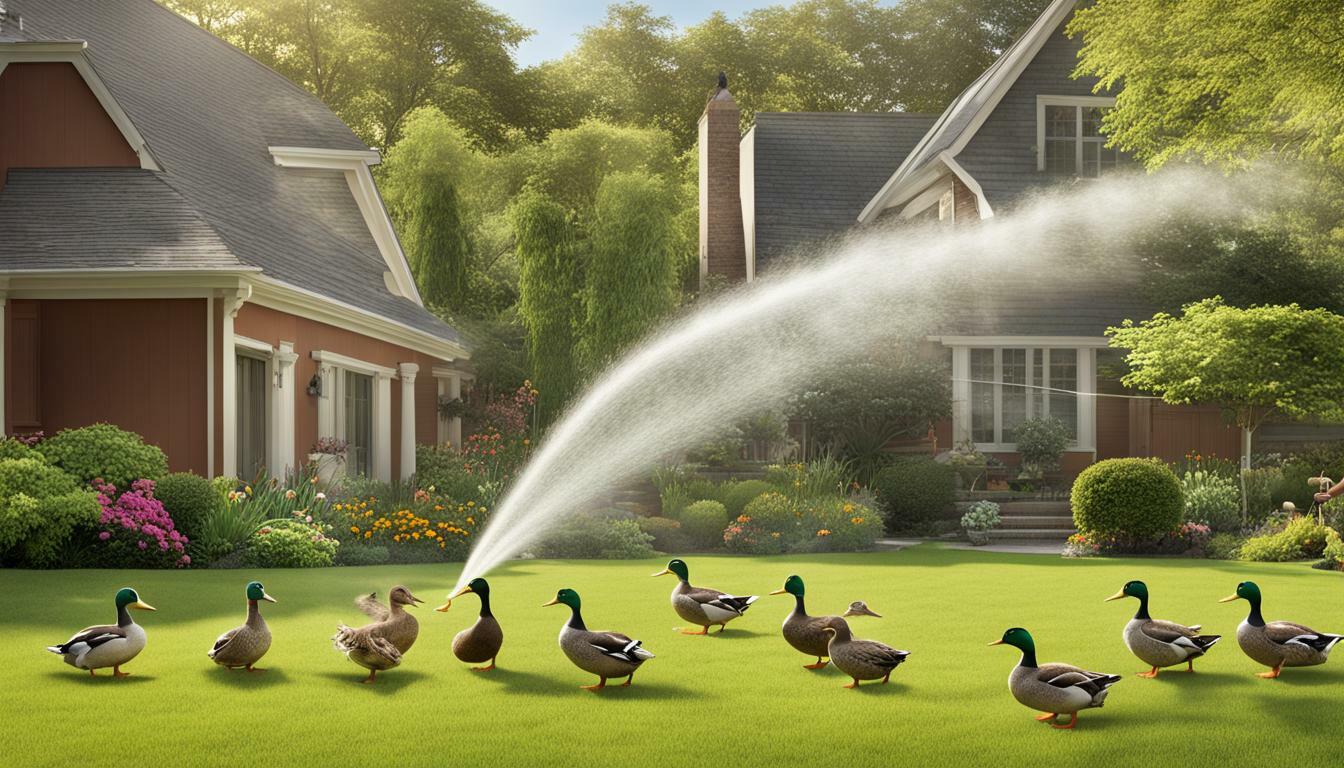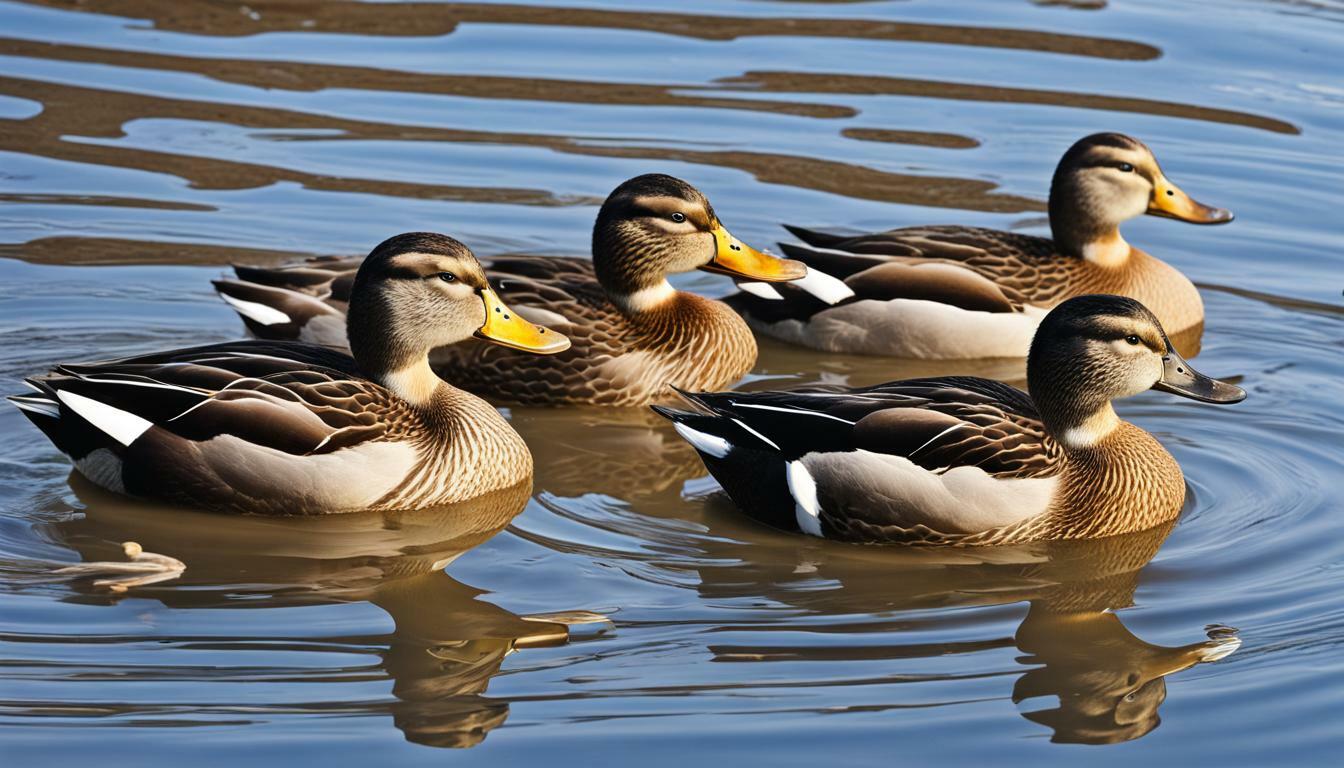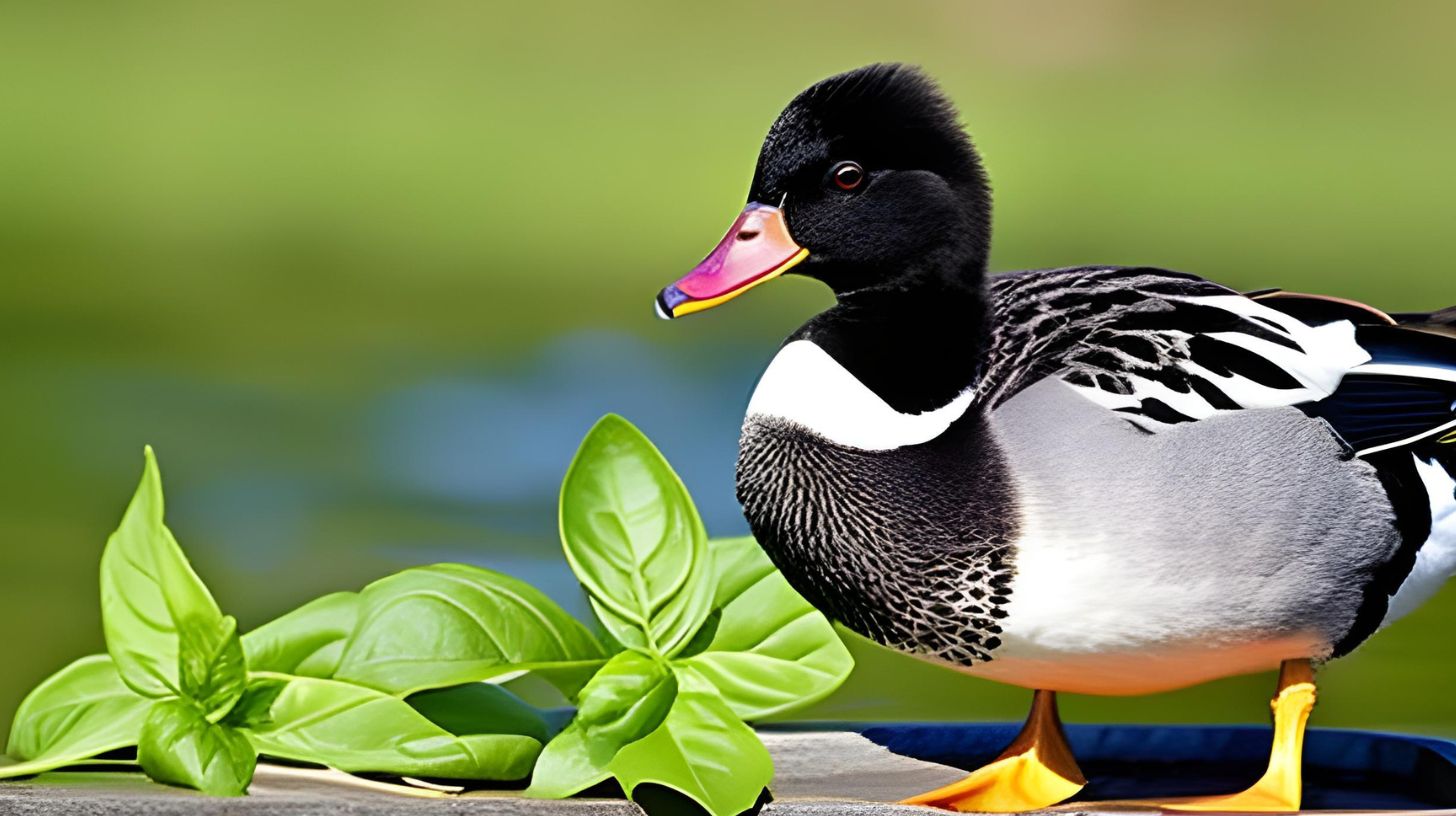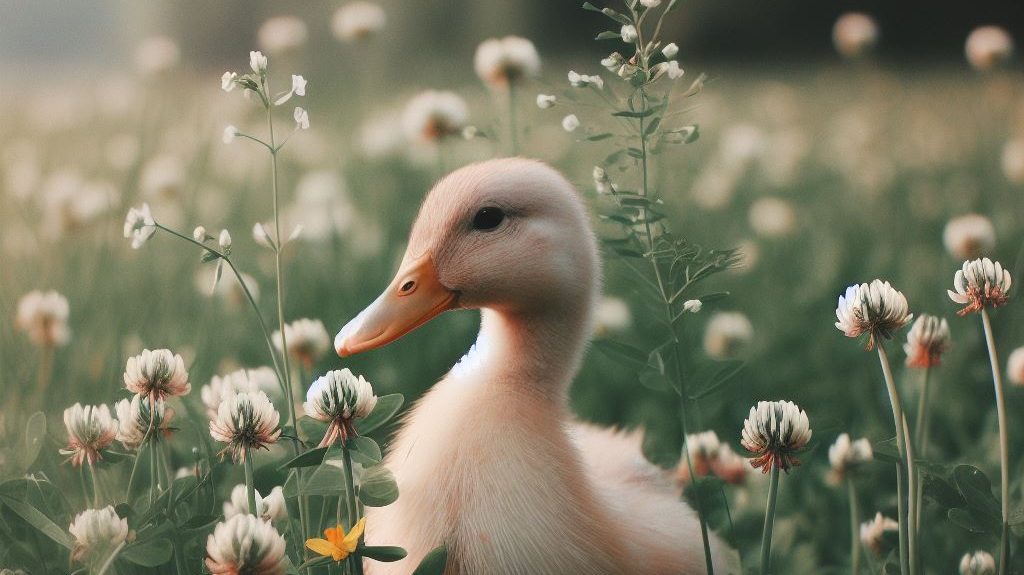How To Stop Ducks From Pooping In Your Yard? Effective Solutions

Table of content:
- Understanding Why Ducks Poop So Much
- Preventing Ducks From Accessing Your Yard
- Keep Your Yard Less Appealing to Ducks
- Clean Up Duck Mess and Discourage Lingering
- Train Your Dog to Scare Off Ducks
- Use Motion-Activated Sprinklers
- Plant Shrubs Ducks Dislike
- Kill Lawn Grubs Ducks Feed On
- Use Fake Predators to Scare Ducks
- Apply Garlic and vinegar Yard Sprays
- Scatter Millet Seed to Keep Ducks Moving
- Layer Landscape Rocks to Deter Ducks
- Register Your Yard as a No-Feeding Zone
- Combine Multiple Deterrents for Best Effect
- Final Thoughts
If you have ducks visiting your yard, you know how much of a mess they can make. Ducks poop a lot, and their droppings can quickly make a lawn or garden unusable. Not only is all that poop unsightly and messy, it can also spread disease and contaminate garden beds or children’s play areas.
So how do you humanely keep ducks away from your yard and stop them from treating it as their own personal bathroom? Here are some of the most effective solutions.
Understanding Why Ducks Poop So Much
Before looking at solutions, it helps to understand why ducks seem to poop constantly.
Ducks don’t actually poop more than other birds – they just poop differently. Chickens and other birds excrete nitrogenous waste in the form of uric acid, which is a semi-solid white paste. Ducks excrete it as a wet, sloppy mess instead.
Ducks also spend a lot of time in the water, and when they get out they shake their tail end vigorously. This spreads their droppings over a wide area.
Preventing Ducks From Accessing Your Yard
The most effective way to stop ducks pooping on your property is to prevent them from accessing it in the first place. Here are some ways to do that:
Install a Fence
Installing a fence around your yard is the best way to keep ducks out. Use tight mesh that ducklings can’t squeeze through. Bury the bottom at least 12 inches underground so ducks can’t crawl under.
You don’t necessarily need to fence the entire perimeter. Fencing garden beds and children’s play areas should be sufficient.
A fence may not look aesthetically pleasing, but it’s one of the few guaranteed ways to exclude ducks.
Use Repellents
There are various chemical and natural duck repellents available:
- Methyl anthranilate-based repellents – These mimic the chemicals in grapes that ducks find unpleasant. Products contain 10-20% methyl anthranilate and are sprayed around yards. They are non-toxic but need to reapply after rain.
- Predator decoys – Fake predators like snakes, alligators or coyotes scare ducks away. For best results, move decoys every few days so ducks don’t get used to them.
- Reflective tape – Flash tape and holographic tape deter ducks when it shimmers in sunlight. Hang tape along fence lines.
- Scent repellents – Ducks dislike the smell of garlic, vinegar or ammonia. Mix with water and spray around your yard. Reapply after rain.
- Ultrasonic devices – These emit high-frequency sounds that annoy ducks and other birds. Unfortunately, they also annoy dogs and some people too.
Repellents may work for a while but ducks often get used to them. And persistent ducks will likely return, especially in the spring.
Use Physical Barriers
If fencing your entire yard isn’t practical, using individual physical barriers can help:
- Cover ponds with netting so ducks can’t land.
- Use poultry wire to block access under decks or porches.
- Install mesh over drainage areas and ditches ducks use.
- Place obstacles like large rocks on lawns and gardens to obstruct ducks.
- Use a wire grid over grass so ducks can still graze but droppings fall through.
The downside is these options can look unsightly. And ducks may still be able to access part of your yard.
Scare or Herd Ducks Away
You can actively scare ducks off your property to train them to avoid it. Here are some methods:
- Charge at ducks shouting and waving your arms to frighten them. A super soaker is also effective.
- Get a herding dog – special breeds can be trained to chase ducks away whenever they appear.
- Set up scarecrows, inflatable tube men, or mylar tape balloons that frighten ducks when they move in the wind.
- Use noisemakers like loud radios, clappers, or banging pots and pans whenever ducks appear.
This is most effective if done as soon as ducks arrive. You want them to associate your yard with being scared so they avoid coming back.
Keep Your Yard Less Appealing to Ducks
Ducks are attracted to yards that meet their needs for food, water and shelter. Discouraging them from lingering helps reduce poop problems:
- Don’t feed ducks – this encourages them to keep returning.
- Remove bird feeders and fallen fruit or seed ducks may eat.
- Scare ducks off ponds or fountains so they avoid watering there.
- Remove excess vegetation they use for shelter like dense bushes and tall grass.
- Apply herbicide to vegetation near water to deter grazing.
- Use reflective materials on banks or shoreline to prevent ducks landing.
The key is making your yard uninviting so ducks only pass through quickly rather than settling in.
Clean Up Duck Mess and Discourage Lingering
Even if you can’t entirely exclude ducks, you can implement measures to clean up after them and discourage lingering:
- Hose driveways, paths, play equipment etc daily to wash away mess.
- Rake up fallen duck feathers which are unsanitary.
- Reduce puddling on lawns by improving drainage.
- Spread fresh grass clippings to disguise duck droppings.
- Use feed with clipping enzymes that help digest poop.
- Scare off ducks when they appear so they don’t get comfortable.
- Use citrus oil sprays – ducks dislike the scent so won’t hang around.
Regular cleaning up of duck mess means your yard stays usable even if some poop still occurs.
Train Your Dog to Scare Off Ducks
Using a dog is an often-overlooked way to keep ducks away. Many duck-deterrent methods are temporary but dogs provide an ongoing solution.
When trained properly, dogs will chase ducks off your property whenever they appear. Border collies and other herding breeds are ideal but most dogs can be trained to do this.
Start by teaching your dog basic obedience commands like come, stay, and leave it. Then practice having them chase toys or balls thrown in water and praise them.
Next, on lead and under your control, let them chase ducks on your property, praising your dog when ducks leave.
With time, your dog will learn to instinctively scare off ducks. Just make sure they don’t actually catch any to avoid injuries.
The great thing about using a dog is they need minimal supervision once trained. Just let them out whenever ducks appear to get rid of them.
Use Motion-Activated Sprinklers
Motion-activated sprinklers are a convenient way to automatically scare off ducks when they enter your yard.
These devices detect movement using infrared sensors up to 35 feet away. They then spray water towards the detected motion for around 3 seconds.
Position them along duck entry points like your shoreline or garden edges. The surprise spray will deter ducks from coming ashore or approaching.
Look for sprinklers with adjustable sensors so you don’t inadvertently soak family members!
Motion sprinklers won’t deter all ducks, especially large groups. But they are helpful as part of an integrated duck deterrent approach.
Plant Shrubs Ducks Dislike
Landscaping with plants ducks can make your yard less inviting. Here are some good options:
- Lavender – Ducks dislike the odor from this flowering plant. Plant around ponds.
- Yucca – The sharp leaves of this succulent deter ducks from nesting. Use as a barrier along fences or water.
- Bee balm – With thorny leaves and a pungent aroma, ducks steer clear of this colorful perennial.
- Bottlebrush – The stiff leaves of this shrub irritate duck feet and deter them from landing.
- Butterfly bush – These resilient shrubs have dense foliage ducks can’t navigate. Plant near prime duck areas.
Choose native plants suited to your climate. Group plantings together for maximum impact rather than single specimens.
This creates attractive barriers ducks will think twice about crossing.
Kill Lawn Grubs Ducks Feed On
Ducks feed on tasty lawn grubs and insect larvae in grass areas. Treating your yard to kill grubs takes away this food source.
Apply beneficial nematodes or milky spore during summer to safely kill grubs without harming grass. These biological controls provide long term grub prevention.
You can also use grub killer products containing chemicals like trichlorfon and carbaryl. But be aware these are toxic and may kill beneficial insects too.
Discouraging ducks from finding food in your lawn means they are less likely to hang around and poop everywhere.
Use Fake Predators to Scare Ducks
Ducks instinctively fear predators like snakes, alligators and foxes. Using fake predator decoys can effectively scare ducks away.
Place decoys in prime duck areas like near ponds. For best results, relocate decoys frequently so waterfowl don’t become desensitized.
Decoys work best when moved occasionally or paired with other deterrents. Motion activated models are even more frightening.
A snake decoy curving over a pond edge is unnerving for ducks when they come to land or drink. Alligator and fox decoys placed around a yard also make them nervous.
These provide an inexpensive but impactful temporary deterrent. Just add to your rotation of anti-duck measures.
Apply Garlic and vinegar Yard Sprays
Natural sprays made with garlic, vinegar or ammonia act as smell repellents ducks don’t like. Apply them wherever ducks frequent.
For garlic spray, finely mince 4 cloves of garlic and steep overnight in 2 cups of water. Strain and mix the garlic water with 2 cups of vinegar.
Spray walkways, yard edges or lawns where ducks regularly appear. Reapply after rain until ducks begin avoiding those areas.
You can also combine 1 tbsp of natural soap with 1 quart of vinegar. The soap helps the vinegar stick to plants longer.
These homemade sprays offer a budget-friendly deterrent, though ducks may become acclimatized after a while.
Scatter Millet Seed to Keep Ducks Moving
One clever approach is to actually encourage ducks to keep walking through your yard instead of settling in.
Scatter some millet or untreated corn seed along the perimeter they enter from. Ducks will peck at the trail of seeds as they waddle through, pooping less in any one place.
Apply more seed to extend the trail and keep them moving along. They’ll be more intent on feeding than stopping to poop.
This works best in larger yards where you can create a long winding path of duck “breadcrumbs”. Time it right and they won’t linger long.
You don’t want to feed them so much they hang around. Just enough entice them to keep walking through.
Layer Landscape Rocks to Deter Ducks
Laying medium sized rocks strategically through your yard creates an irritating obstacle course for ducks.
They dislike walking across sharp uneven rocks. But rocks still allow grass to grow through.
Focus on high duck traffic areas and bodies of water. The discomfort makes them less inclined to hang around.
Aim for a density of 1-3 fist sized rocks per square foot. Use rounded river stone rather than angular gravel which could cut webbed feet.
Avoid any rock colors that contrast strongly with ducks to minimize visual impact. Limestone or neutral tones work best.
The rocks can divert ducks away from certain zones. When combined with other deterrents, this provides natural protection.
Register Your Yard as a No-Feeding Zone
Many urban duck problems are exacerbated by people feeding them. Getting your yard certified as a no-feeding zone can help.
In many areas, you can register your address on an official registry of no-duck feeding zones. This is enforced with fines for non-compliance.
Install clear signage indicating duck feeding is prohibited. Also speak to neighbors and anyone else who may feed them nearby.
When ducks realize there’s no free food available, they are quicker to move on rather than loitering.
Having a recognized no feeding zone also means you can call authorities to help with persistent duck issues. Keep your yard off the duck dining map!
Combine Multiple Deterrents for Best Effect
No single duck deterrent is 100% effective for every yard. The best approach is to combine several complementary methods.
This ensures ducks are confronted with multiple protections from decoys, Dogs, spraying, exclusion barriers and other disincentives.
Rotate different deterrents periodically so they don’t become ineffective. Maintain them diligently, especially after storms or through nesting season.
With an integrated duck defense plan in place, you can reclaim your yard from being an all-you-can-eat duck buffet and poop free for all!
Final Thoughts
Ducks can quickly make a mess of your carefully maintained yard with their copious droppings. Their loose wet poop contains bacteria and makes areas unpleasant and unsafe.
Thankfully there are many effective humane ways to deter ducks and proactively stop them treating your property like their own personal outhouse.
Combined approaches work best for long term duck dissuasion. Focus on exclusion and removing food sources, and supplement with active hazing as needed.
With some persistence, you can reclaim your yard and keep it an inviting space for you, not hordes of pooping ducks. Just be prepared to adapt your tactics if the ducks find ways around your defenses.
Welcome. I’m Adreena Shanum, the proud owner of this website, and I am incredibly passionate about animals, especially poultry. I founded adreenapets.com as a labor of love, stemming from my desire to share my knowledge and experiences with poultry enthusiasts worldwide.




